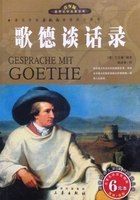The turned-over capital of £50,000 divided by the advanced capital of £5,000 makes the number of turnovers 10. The rate of surplus-value, 5,000s/5,500v, or 100%, multiplied by the number of turnovers, 10, makes the annual rate of surplus-value 50,000s/5,500v, or 10/1, or 1,000%. Now the annual rate of surplus-value are alike for A and B, namely 1,000%, but the amounts of the surplus-value are £50,000 in the case of B, and £5,000 in the case of A. The amounts of the surplus-value produced are now in the same proportion to one another as the advanced capital-values B and A, to wit: 5,000 : 500 = 10 : 1. But capital B has set in motion ten times as much labour-power as capital A within the same time.
Only the capital actually employed in the labour-power produces surplus-value and to it apply all laws relating to surplus-value, including therefore the law according to which the quantity of surplus-value, its rate being given, is determined by the relative magnitude of the variable capital. [See Karl Marx, Capital, Ch. XI. -- Ed .]
The labour-process itself is measured by time. If the length of the working-day is given (as here, where w assume all conditions relating to A and B to be equal, in order to elucidate the difference in the annual rate of surplus-value), the working week consists of a definite number of working-days. Or we may consider any working period, for instance this working period of 5 weeks, as one single working-day of, say, 300 hours, if the working-day has 10 hours and the week 6 days. We must further multiply this number by the number of labourers who are employed conjointly every day simultaneously in the same labour-process. If that number is taken as 10, there will be 60 times 10 or 600 hours in one week, and a working period of 5 weeks would have 600 times 5, or 3,000 hours. The rate of surplus-value and the length of the working-day being the same, variable capitals of equal magnitude are therefore employed, if equal quantities of labour-power (a labour-power of the same price multiplied by the number of labourers)are set in motion in the same time.
Let us now return to our original examples. In both cases, A and B, equal variable capitals of £100 per wee are invested every week throughout the year. The invested variable capitals actually functioning in the labour-process are therefore equal, but the advanced variable capitals are very unequal. In the case of A, £500 are advanced for every 5weeks, of which £100 are employed every week. In the case of B, £5,000must be advanced for the first 5-week period, of which only £100per week, or £500 in 5 weeks, or one-tenth of the advanced capital, is employed. In the second 5-week period £4,500 must be advanced, but only £500 of this is employed, etc. The variable capital advanced for a definite period of time is converted into employed, hence actually functioning and operative variable capital only to the extent that it really steps into the sections of that period of time taken up by the labour-process, to the extent that it really functions in the labour- process. In the intermediate time, in which a portion of it is advanced in order to be employed later, this portion is practically non-existent for the labour-process and has therefore no influence on the formation of either value or surplus-value.
Take for instance capital A, of £500. It is advanced for 5 weeks, but every week only £100 enter successively into the labour-process.
In the first week one-fifth of this capital is employed; four-fifths are advanced without being employed, although they must be in stock, and therefore advanced, for the labour-processes of the following 4 weeks.
The circumstances which differentiate the relation between the advanced and the employed variable capital affect the production of surplus-value -- the rate of surplus-value being given -- only to the extent, and only by reason of the fact that they differentiate the quantity of variable capital which can be really employed in a stated period of time, for instance in one week, 5 weeks, etc. The advanced variable capital functions as variable capital only to the extent and only during the time that it is actually employed, and not during the time in which it remains in stock, is advanced, without being employed. But all the circumstances which differentiate the relation between the advanced and the employed variable capital come down to the difference of the periods of turnover (determined by the difference of either the working period, or the circulation period, or both). The law of production of surplus-value states that equal quantities of functioning variable capital produce equal quantities of surplus-value if the rate of surplus-value is the same. If then, equal quantities of variable capital are employed by the capitals A and B in equal periods of time with equal rates of surplus-value, they must generate equal quantities of surplus-value in equal periods of time, no matter how different the ratio of this variable capital employed during a definite period of time to the variable capital advanced during the same time, and no matter therefore how different the ratio of the quantities of surplus-value produced, not to the employed but to the advanced variable capital in general. The difference of this ratio, far from contradicting the laws of the production of surplus-value that have been demonstrated, rather corroborates them and is one of their inevitable consequences.
Let us consider the first 5-week productive period of capital B. At the end of the fifth week £500 have been employed and consumed.















